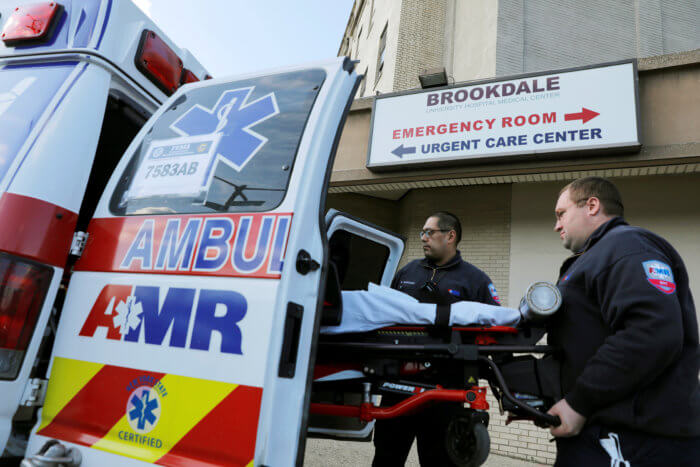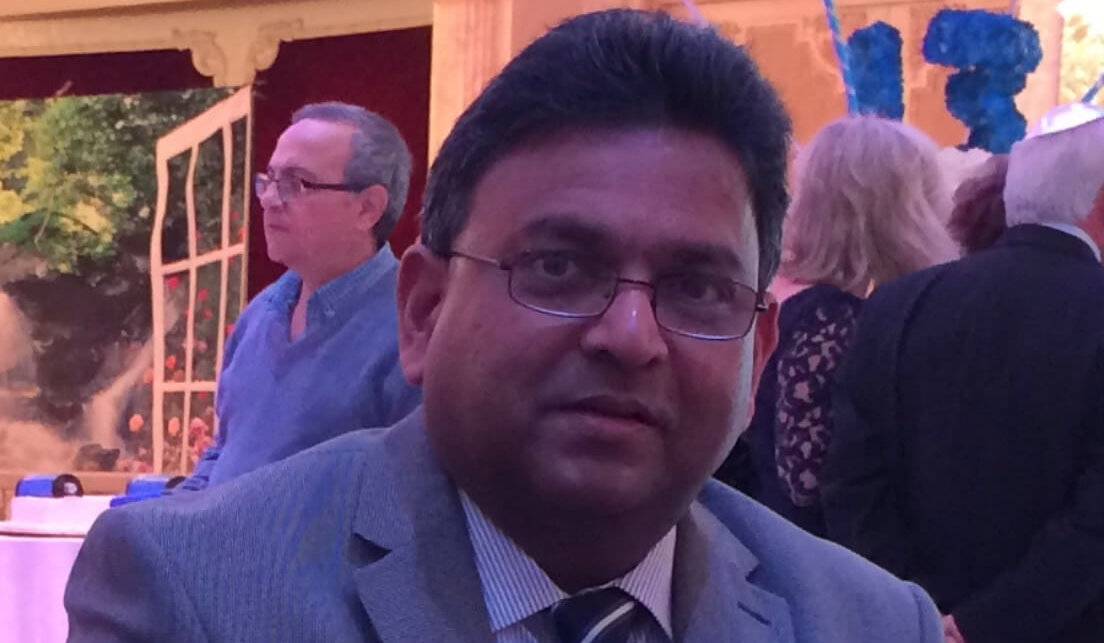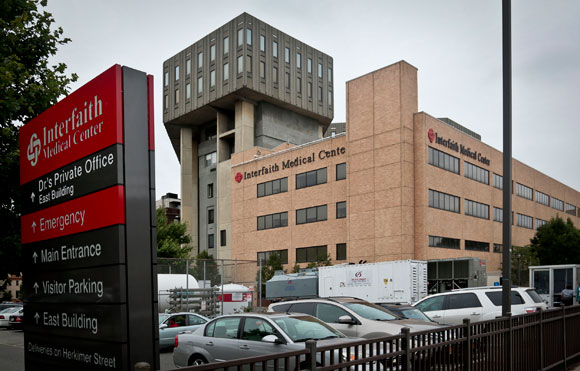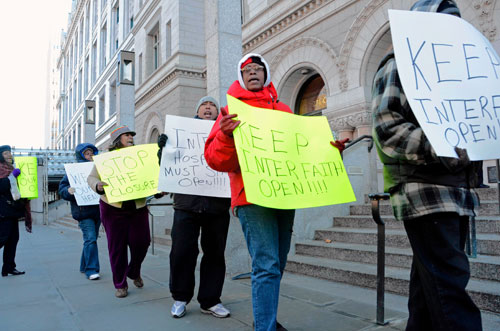Almost a year after he was first infected with COVID-19 while working on the frontlines at Brookdale Hospital, internal medicine doctor Sabarartham Shangmugananthan still struggles to walk more than a few feet before his oxygen levels go down.
“I never thought it would happen to me. I’m very healthy, never been sick,” said Shangmugananthan, who goes by Dr. Saba. “I knew it was a dangerous disease, but I didn’t expect it to come to this.”
The 62-year-old physician and father-of-two returned to his family and his home on Long Island on Feb. 3, after almost a year of being hospitalized and slowly recovering from a near-fatal case of the novel coronavirus he believes he contracted at the onset of the pandemic.
Dr. Saba has no memory of the months he was comatose and on a ventilator that helped him survive the highly-contagious respiratory illness, but believes he caught the virus sometime after the first patients arrived at the health facility in mid-March.
The hospital is surrounded by predominantly Black and working-class neighborhoods, including Brownsville, East New York, and Canarsie, and during the early weeks of the pandemic African-American and Hispanic New Yorkers died at twice the rate from the virus compared to their white and Asian counterparts.
Due to scarce testing at the time, it’s possible the veteran physician got the bug from a patient who hadn’t been registered as COVID-positive by the hospital.
“I have a feeling that the patients were not documented as COVID-positive but might have had other illnesses like pneumonia,” he said. “Maybe the other patients that were not documented as COIVD-19, we might have been exposed [to them].”
One of his colleagues tested positive first but only had a mild case of the illness and returned after 10 days. Dr. Saba tested positive on March 24.
“I had minor symptoms,” he said.
Worsening symptoms
He stayed home for a few days, taking medication and self-isolating in his bedroom from the rest of his family. Not long after, he started having trouble breathing so a friend and fellow physician ran some blood tests for him.
The results showed low blood counts, deranged kidney functions, and dehydration, and Dr. Saba was on the first ambulance to a local hospital.
“I don’t remember much after going to the hospital,” he said.
Doctors intubated him and put him on a ventilator in early April, and soon several of his organs failed, including his lungs and kidneys.
He was comatose and in intensive care for three months during which time he suffered infections like pneumonia and had to get several blood transfusions. At one point, he said, his family was ready to sign a do-not-resuscitate order because they didn’t know if he would make it.
“My family was not sure whether I would come back or not, they were talking about palliative care and getting ready to sign a DNR,” Dr. Saba said.
However, fellow doctors advised the family not to sign the form, saying he had a good chance of recovering due to having no history of health issues.

Signs of hope
Dr Saba’s condition started improving, but he says his memory of the worst months is just a blur.
“It took about 3 months to come back where I could communicate,” he said. “For me it was like a dream, you know.”
He went into rehab on July 15, while remaining on a ventilator and a feeding tube. At the end of October he was transferred to a nursing home for physical therapy.
In January, he was finally taken off the ventilator and feeding tube and was allowed to return home the next month.
Dr. Saba still constantly has oxygen fed into his nose and has suffered permanent lung damage due to the virus, pneumonia, and being intubated for a long period of time, and the physician took several breaks to cough heavily during a phone interview with Brooklyn Paper.
Support from fellow heroes
One of his colleagues, Dr. Anjula Gandhi, launched an online fundraiser that brought in more than $98,000 to support Dr. Saba, who she said dedicated almost three decades to saving lives at hospitals in some of Brooklyn’s neediest neighborhoods, starting at Interfaith Medical Center in Bedford-Stuyvesant 1994, before moving to Brookdale in 2013.
“Dr Saba is one of the kindest human beings and an exemplary physician,” wrote Gandhi on the GoFundMe page. “We aim to help him and his family in these hard times through this platform.”
“I’m overwhelmed, people were very generous. I didn’t expect it, it’s very generous and they were very forthcoming,” Dr. Saba said in response to the fundraiser.
Despite still struggling to walk more than a few feet, Dr. Saba said his health is improving and he hopes to get back to work.
“I want to get back to some form of normal so I can get back to work,” he said.
The doctor said he likely got such a bad case due to heavy exposure to the virus at the beginning of the outbreak, and said that nowadays it’s less likely to get such a bad case due to more pervasive mask-wearing and social distancing protocols.
“[As] healthcare workers we are more prone to having severe forms of disease because we are just exposed right and left to disease,” he said.
However, he advised that people still stick to those guidelines to prevent further spread of COVID-19.
“General advice is primary prevention, to wear a mask, hand washing, and also social distancing,” he said.





















